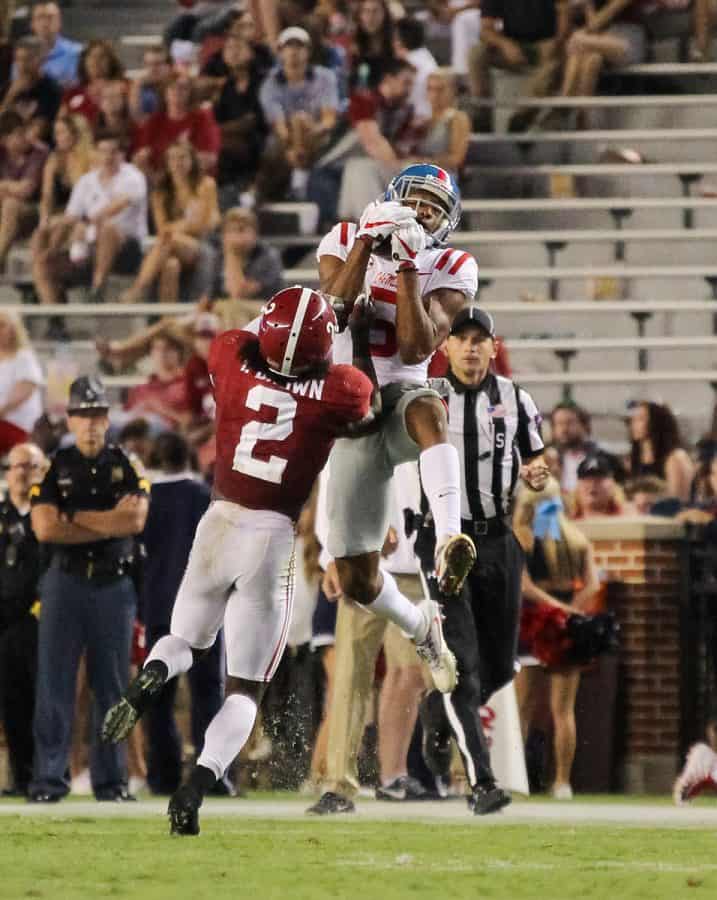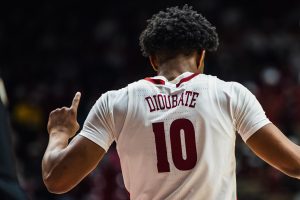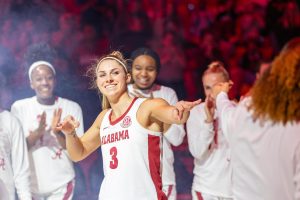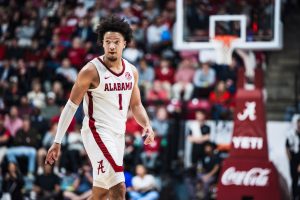Ole Miss’s 2018 offense mirrors past threat
September 13, 2018
Alabama hasn’t faced an offense like this since… well, Ole Miss two years ago.
The Rebels have changed quarterbacks twice since that sweltering day in Oxford when Alabama faced its largest deficit in a decade: Chad Kelly has since moved on to the NFL and his apparent-heir Shea Patterson transferred to the University of Michigan this spring, but this iteration of the offense might be as prolific as the Kelly-led version that hung 43 points on the Crimson Tide in 2015 and 2016.
When Patterson suffered a season-ending injury early last October, then-junior Jordan Ta’amu, who had no starting experience at the Division I level, stepped in and threw for more than 360 yards in each of his first three games.
He has started his senior season right where he left off. Ole Miss currently ranks second out of 130 FBS teams in passing yards per game and third in points per game. In the eyes of Alabama head coach Nick Saban, the Rebels’ offense presents even more challenges now than it has in the past.
“I think early in the year last year, they weren’t running the ball very effectively,” Saban said. “I think they got back to balance, running the ball, throwing a lot of RPOs [run-pass options], throwing good play-action passes. … [Ta’amu] makes plays with his feet, so he’s an extra dimension as well as being a very, very efficient passer.”
Run-pass options complicate a defense’s plan of attack because they are designed to respond to what the offense does. If a quarterback sees a linebacker anticipating a run and approaching the backfield, he’ll keep the ball and likely throw to the open area the linebacker vacated.
If the linebacker stays back in coverage, wary of the pass, the quarterback will hand off to the running back.
Defensive backs can usually abandon their coverage responsibilities as soon as the play appears to be a run, but RPOs take away that luxury. Opposing wide receivers might feign run blocking in hopes that the DBs will let their guard down, then break into a passing route.
“There are almost-passing plays on every running play,” Saban said. “So [defensive backs] have to guard the receivers all the time. … I think you have to play good team defense all the way around if you’re going to play well against this quality quarterback, this quality group of receivers and their ability to create balance by running the ball.”
Ole Miss’ top trio of receivers compares favorably to almost any other in college football. A.J. Brown, DaMarkus Lodge and D.K. Metcalf totaled 25 receiving touchdowns last season. Each had a touchdown of more than 70 yards and each averaged more than 16 yards per reception.
Brown, who is widely considered the best of the three, was voted onto the All-SEC first team by the media in July and has been projected as a top-five pick in next April’s NFL draft.
NFL Network draft analyst Daniel Jeremiah wrote two months ago that Brown’s greatest attributes are his toughness, size and physicality.
More than two-thirds of Ta’amu’s completions have gone to a member of the transcendent trio, and all are averaging around 16 yards per catch again in 2018.
“These are three NFL caliber guys,” defensive back Deionte Thompson said. “They stretch the field at any time, and they have a good quarterback to go along with that trio, so that’s something we’re going to have to be prepared for.”
As Saban alluded to, the Rebels don’t strike only through the air, either. Junior-college transfer Scottie Phillips seized the starting job in the spring and has torn through opposing defenses so far. His 10 yards per carry rank third in the Power Five conferences.
It would be a stretch to say Alabama’s defense, which has allowed only 21 total points to Louisville and Arkansas State offenses, is scared of Ole Miss. But traveling to the ever-hostile Vaught-Hemingway Stadium for a primetime matchup with a prolific, well-rounded offense has the Crimson Tide on notice.
“I feel like they do everything well,” linebacker Dylan Moses said. “They have a lot of greatness; they could potentially beat us. They could really beat us if we don’t handle our business. We really have to come to this game prepared.”





















